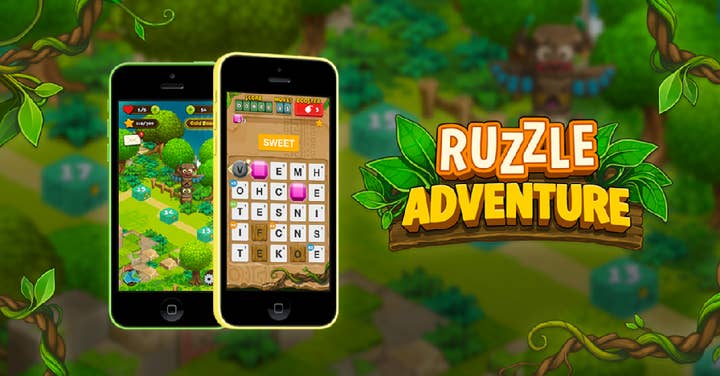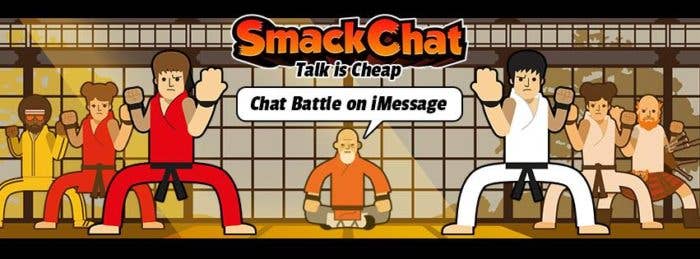Staying on Message
MAG Interactive's Daniel Hasselberg on messaging apps as platforms, 80% organic growth and Day 1,000 retention
Over the last five years, MAG Interactive has been staging something of a quiet revolution, building 100 million downloads across its portfolio of casual mobile word games, investing in and then buying Brighton's Delinquent studio, and becoming one of just 15 companies invited to publish on Instant Games by Facebook.
MAG's biggest hit, Ruzzle, is celebrating its fifth anniversary in great health and with impressive acquisition, retention, and engagement figures, and the company has managed to avoid becoming embroiled in the expensive war of attrition which personifies user acquisition. CEO Daniel Hasselberg says, with typical humility, that a certain amount of it comes with the territory of genre and demographic, but a lot of it is down to finding loyal users who aren't looking for games, preferably ones who are going to feel guilty about not hanging out with their friends.
"If you look at a game like Ruzzle, it has a built-in social network element to it which gives it massive long-term retention," Hasselberg explains. "Around 10% of the players who were playing five years ago are still there, so there is a Day 1,000 retention which isn't zero.
"Usually when you start playing, it's against your real world friends, because they invite you to the game. Then, because it's skill-based you tend to play against more random people and develop your own Ruzzle friends. You'll probably never meet them in person, even though we've had some lovely stories about people hooking up. But that social aspect almost creates a sort of peer pressure to play the game. Maybe at times you'll grow tired of it, that's natural, but then your friends sort of expect you to answer when they invite you to play. So the game and its connections are inviting you back to play, and that's a lot stronger than 'come back and you get five extra coins.'
"Our target audience is really people who don't play many games, so they're not going to the App Store to look for what's new"
"I think the other key, as you mentioned, is that demographic. Our target audience is really people who don't play many games, so they're not going to the App Store to look for what's new. I don't have any real evidence for this, but I think they have a much lower exchange rate for what's on their homescreen. They're less fickle.
"Then when it comes to our competition for user acquisition...nearly all of our users actually come in organically through recommendations or word of mouth. Because that's your friend recommending the game, we're not competing with a ton of other companies in an auction on Facebook to see who can bid the most to convince you to install the game. That helps a lot to help keep the cost down."
Of course, cost effective UA is the keystone of almost any successful mobile game, and it's nowhere near as simple as "find loyal, talkative users." MAG uses the usual channels for paid installs, including some TV advertising, which Hasselberg says are paying off well, but nonetheless the publisher's user acquisition is 80% organic. I ask Hasselberg if he thinks UA is moving in a sustainable direction.

"We don't see prices continuously going up, which some people do," he says. "I think it depends on what you look at - some of the scary studies you see, industry reports, show CPIs going up and up, and comparing that to the average lifetime value seems to just not add up. But I guess it depends on who is actually paying the average CPI - it depends on how good you are at targeting your marketing efforts. If you know who you're showing your ads to, it doesn't necessarily have to get more expensive every single year.
"We have a bunch of criteria for what makes a MAG game. One is that it needs to be truly accessible. Our typical player is 30+ with a slight bias towards women. That's a huge player base. Again, without having any definite evidence, it's very likely that the fastest growing segment of gamers is casual players. Most people who get a new smartphone today have never had a console at home. I think it's a really interesting market to grow in."
Given that demographic target, and the nature of MAG's portfolio, it's perhaps no surprise that they should be one of the early adopters of new message app-based gaming platforms. As well as getting on board with Instant Games on Facebook Messenger, the company is creating for iMessage on iOS 10. Both are pretty nailed on when it comes to reaching MAG's target market.
"We look at all new platforms which could potentially be interesting to us, so we'd obviously not do something like VR at this stage when you have a single-digit million install base; we want hundreds of millions and we also want them to be casual gamers. That's what's exciting about the messaging platforms: it's exactly where our users are. It's a broad base of social people. So we said yes when Facebook asked if we wanted to be a part of the global launch of Instant Games.
"We got a million players in the first two months, and that's without any kind of marketing at all"
"It's a really new platform still, so there's some work to do for the platform owners when it comes to how it's going to work and what needs to be there to make it a perfect user experience, but we've found it really easy to get in front of a lot of people. We got a million players in the first two months, and that's without any kind of marketing at all. That's not as easy on mature platforms like the App Store or Google Play. You have to do a lot of marketing to get people to see your games there.
"So it makes sense for us to be there, but for game makers you also need to think about what it means to be part of a messaging ecosystem and not an app store, what it means to not be installed to a device, but be part of a thread. We built a game for iMessaging which we launched this year, called Smack Chat, which I think is actually pretty clever. The game is built around dialogue, with a rock, paper, scissors system where you exchange insults in little Kung-fu battles.
"It's fun, and spreads pretty organically between people. I think that's the way to approach it, you have to embrace the fact that the game is a part of a dialogue - it's difficult to stop in the middle of a conversation and play an actual game. So you need to make it back and forth, truly social, then I think it can sit perfectly in that messaging context."
That context means that MAG isn't likely to be porting other games to the platform in anything like their original formats unless there's an excellent existing fit, but the CEO is very open to light or satellite versions of full mobile games offering a messenger-native experience and linking to their more fully-fledged counterparts. Letting people play in as many different ways as possible is usually a good idea, after all.

"People have seen this over the last few years - if you're cross platform, people will spend more time in both. A few years ago people were publishing to Facebook and mobile and the people who played on both platforms were the best customers. They weren't cannibalising. The more places people can play your game, the better. As a small company you need to focus on where you can create the best value, so we try to be careful and dip our toe a little and see if it makes sense. If it doesn't, we can pull back."
Moving quickly on messenger-based gaming will put MAG ahead of a potential crowd. Hasselberg says he expects the industry, which has had an eye on the success of companies like Tencent with WeChat's complete ecosystem, to follow quickly - looking for a third swing at the vast casual market unearthed and fertilised by Facebook and mobile gaming. Still, he's aware that there are definite lessons to be learned from any market which deflates as quickly as Facebook's social gaming ecosystem.
"I think one thing, and maybe this wasn't as big an issue for the games as it was the players, was the way games spammed Facebook feeds. A lot of games and companies built their success on being spam machines. I think that's something Facebook and Apple will do their best to make sure doesn't happen in this new context. So I think that's something to keep in consideration when building games for these platforms: they should behave.
"If you consider making a game which is built for group messaging, that could quickly result in a very spammy situation. People have seen that before. Handling trust in a good way is essential. People still have a hard time getting players to log in with Facebook, even if it's just going to be used to sync progress between devices, because people are still afraid that it's going to be spamming their newsfeed and friends, even though it can't do that without express permission, there's still that perception."
MAG isn't alone in the space in Europe. British company Palringo has been looking at ways to make games work in its messaging apps for a few years, for example, but there's yet to be a killer app. Given the restrictions of the platform, does Hasselberg see it maturing in terms of what it can offer to players?
"With Instant games, it's HTML5 based, so it's limited in what you can do with that tech, but the beauty of it is that you don't need to install anything, so it's actually pretty much instant. For a casual gamer, that's exactly what you're after, there's almost no barrier to entry.
"Facebook probably has a roadmap for what it wants to add over time, in terms of back end tech support. At this stage it's fairly limited in terms of what you can do with a game, but I assume and expect that it's going to improve."
